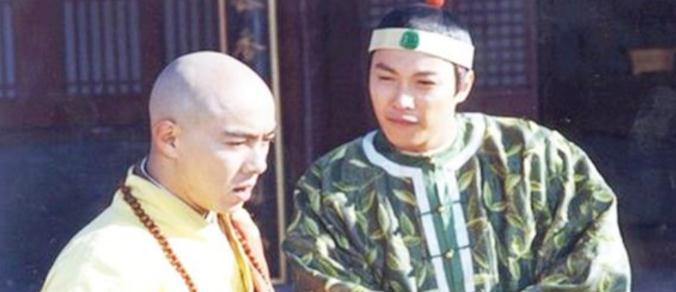Since the Entry of the Manchu Qing Dynasty, the Shunzhi Emperor has become the first emperor of the Qing Dynasty. At that time, shortly after the establishment of the Qing Dynasty, when the Shunzhi Emperor visited Haihui Temple, he was very close to a monk named Huan Pu, and he also talked with this monk about a lot of understanding of Buddhism. After this conversation, the Shunzhi Emperor began to believe in Buddhism in his heart, and when he handled political affairs in his daily life, he would think with the concept of Buddhism.

The reason why the Shunzhi Emperor had so much time to explore Buddhist culture was because he had a very capable mother, that is, Empress Xiaozhuangwen, who was very good at managing the government and solved many problems for the Shunzhi Emperor. The Shunzhi Emperor was the first emperor of the Qing Dynasty, and naturally he was very curious about the national fortunes of his country, and he was eager to know whether the Manchus could gain a firm foothold in the Central Plains.
Later, when meeting the senior monk YulinXuan, he raised his own questions to the senior monk, hoping to know how the luck of the Qing Dynasty was, and the senior monk said a total of two sentences, the first sentence was: I am not crippled, and the country is not destroyed. The Shunzhi Emperor thought for a long time and could not understand the meaning of this sentence, and the senior monk was unwilling to explain it again. So the Shunzhi Emperor asked a direct question, that is, how many emperors will I have in the Qing Dynasty? The monk said the second sentence: The tenth emperor reigned and the nine emperors were imprisoned, and one was in Youzhou. The Shunzhi Emperor heard the meaning of this sentence, and he seemed to know the fate of the Qing Dynasty.
Later, after the fall of the Qing Dynasty, the meaning of the two sentences spoken by the senior monk was obvious. Everyone knows that the last emperor of the Qing Dynasty was Puyi, and the traditional writing of this "Yi" character is "儀", and this traditional character has a "I" at the bottom, and the folk custom is to write "I" less, so that "I" becomes a remnant. It is not the deep meaning hidden in the phrase "I am not crippled, and the country is not destroyed". The other sentence "Ten Emperors reigned and nine emperors were imprisoned" means that there were ten emperors in the Qing Dynasty, and the ninth of them was imprisoned, so who was this ninth emperor?
Undoubtedly, it was the Guangxu Emperor, who during his reign, the power had always been controlled by Empress Dowager Cixi, although the Guangxu Emperor had the idea of changing the law, but Empress Dowager Cixi was stubborn, and in order to stop him, she even imprisoned him in Yingtai. "There is also an emperor in Youzhou", who is this emperor in Youzhou referring to? After the fall of the Qing Dynasty, the last emperor Puyi once fled to the northeast, became a puppet emperor with the support of the Japanese, and established the puppet state of Manchukuo, which was also known as Youzhou in ancient times.
Nowadays, not long after the establishment of the Qing Dynasty, the old monk had already predicted the fortunes of the Qing Dynasty in two sentences, although the Shunzhi Emperor at that time could not understand the deep meaning, but later the sentences were fulfilled, which showed that this high monk was indeed unfathomable.